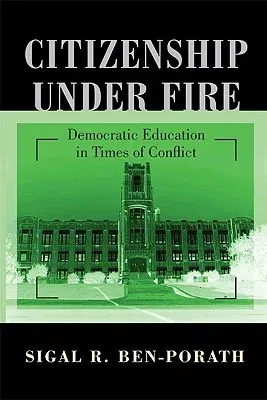Citizenship under Fire examines the relationship among civic
education, the culture of war, and the quest for peace. Drawing on
examples from Israel and the United States, Sigal Ben-Porath seeks to
understand how ideas about citizenship change when a country is at war,
and what educators can do to prevent some of the most harmful of these
changes.
Perhaps the most worrisome one, Ben-Porath contends, is a growing
emphasis in schools and elsewhere on social conformity, on tendentious
teaching of history, and on drawing stark distinctions between them and
us. As she writes, "The varying characteristics of citizenship in times
of war and peace add up to a distinction between belligerent
citizenship, which is typical of democracies in wartime, and the liberal
democratic citizenship that is characteristic of more peaceful
democracies."
Ben-Porath examines how various theories of education--principally peace
education, feminist education, and multicultural education--speak to the
distinctive challenges of wartime. She argues that none of these
theories are satisfactory on their own theoretical terms or would
translate easily into practice. In the final chapter, she lays out her
own alternative theory--"expansive education"--which she believes holds
out more promise of widening the circles of participation in schools,
extending the scope of permissible debate, and diversifying the
questions asked about the opinions voiced.

